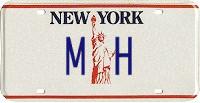|
Home => Defensive Computing
|
|
Home => Defensive Computing
|
| [Formatted for Printing] | From the personal web site of Michael Horowitz |
| Schedule | |
| The class was offered at Hunter College. It is not currently scheduled. | |
| Topics below: | Essentials Course Description Handout Topics Course Topics Free Sample |
This is a six week class offered as two 3-week courses. Each half stands alone, it is not necessary to take Part 1 before taking Part 2.
Defensive Computing is for people to whom the health and well being of their computer and/or data is important.
Using a car analogy, this is not a learn to drive class. It assumes you know something about cars and teaches how to test the oil level, when to change the oil, the various types of oil, what the tire pressure should be, how often to test the tire pressure, etc., etc. It is, in effect, the owners
manual for a personal computer.
This is not a class on fixing problems with Windows. Instead, it is geared to preparation work you need to do so that problems can be avoided,
minimized, worked around or bypassed. If you use a computer for something important and want to safeguard it, without becoming a computer
expert, this is the class for you.
This class is for:
The class covers Windows XP, 2000, 98 and ME. There is a separate handout for each class (of at least 30 pages) so students can spend their time listening rather than writing. Most of the software covered in the class is free Ė the course might pay for itself.
Pre-requisite: The only prerequisite is some knowledge of how to use a PC. Again, if you want to learn how to use Windows, this is not the class for you. Terminology will not get in the way, the class is as devoid of computer lingo as possible.
Be sure to read Security on the cheap by Alex Eckelberry, President of Sunbelt Software. August 25, 2005
There are five handouts for the six classes. Each handout is 40 pages (or more).
Handout 1
|
Handout 2
|
|||
Handout 3
|
Handout 4
|
|||
Handout 5
|
||||
To help you get a feel for the class:
| | ||
| @defensivecomput | TOP | Home => Defensive Computing |
| michael at michaelhorowitz.com | Last Updated: November 29, 2006 | ||
| www.michaelhorowitz.com/defensivecomputing.html |

Copyright 2001-2024 |
Copyright 2001-2024 |